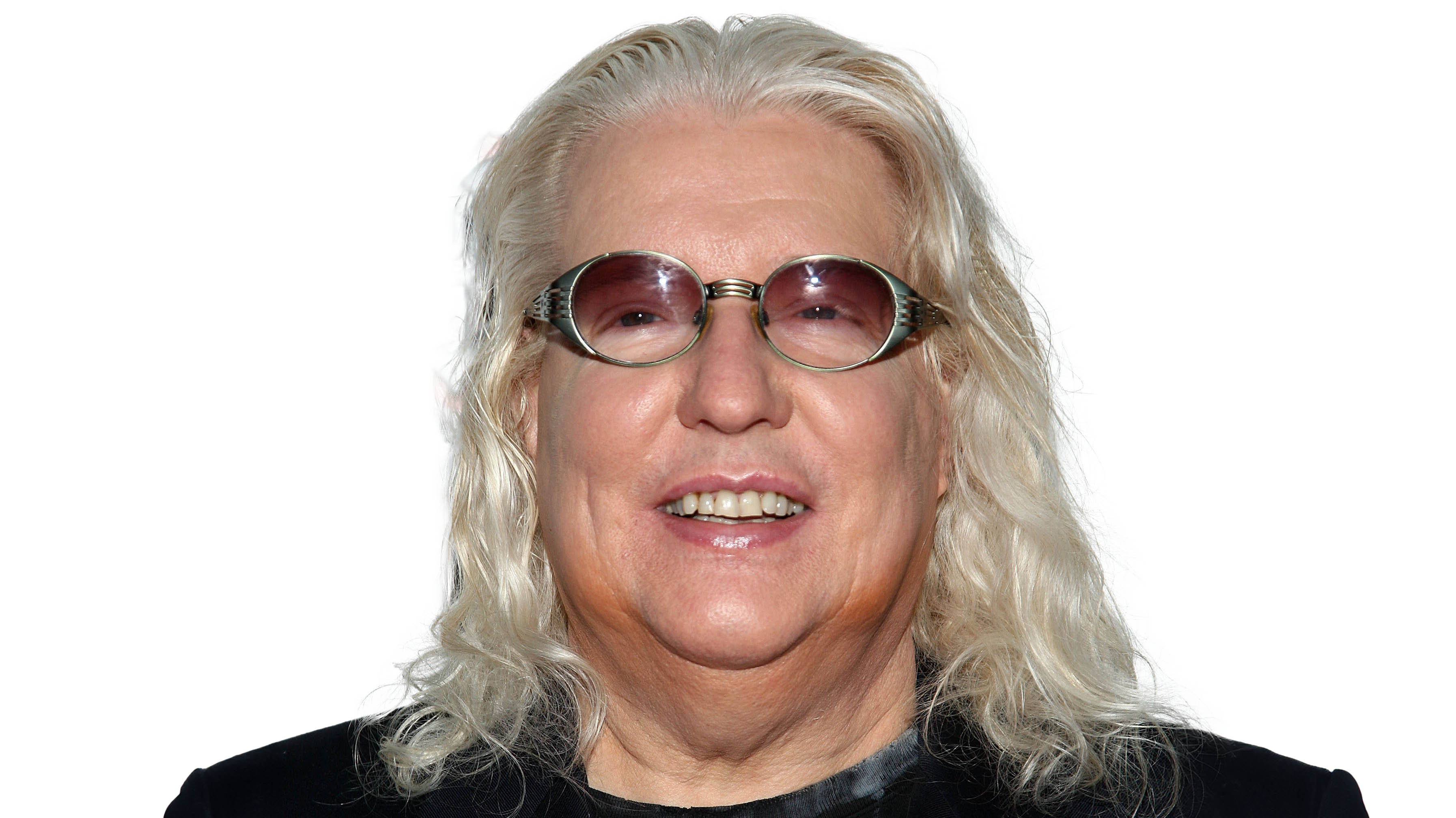Dave Davies talks guitars, self expression and You Really Got Me
"There's frustration, anger and rage in the music."
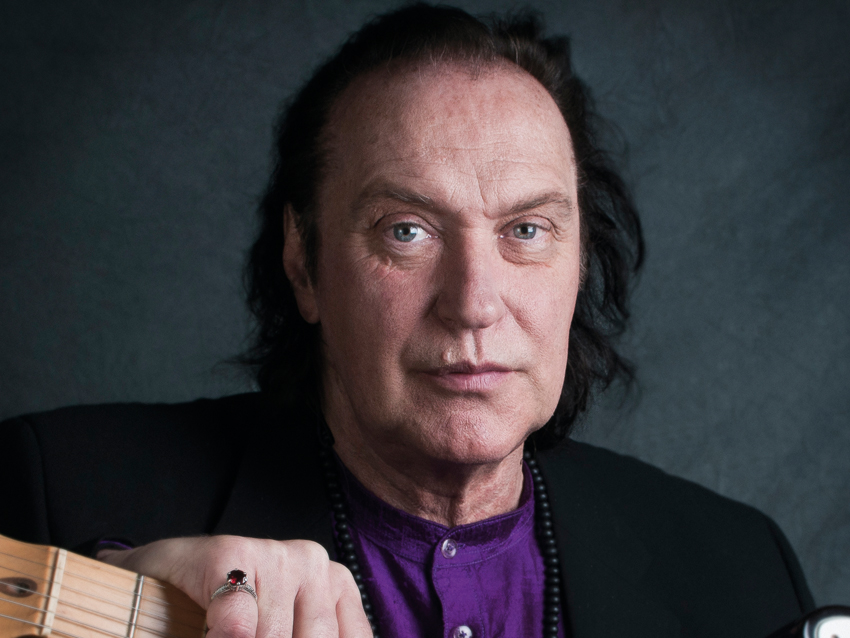
Dave Davies talks guitars, self expression and You Really Got Me
It’s 50 years since the abrasive power chords of You Really Got Me lit up the charts on both sides of the Atlantic, scrawling a blueprint for future generations of rock guitarists to follow.
Ahead of his first UK concert in 13 years, the legendary Kinks guitarist recalls the formative musical experiences he shared with his brother Ray in late 1950s London, the influence of early rock ’n’ roll, and electrocuting himself on the way to carving out a place in pop history...
“I always loved the guitar, from when I was quite little. My dad had a G banjo at the house, that he played. When he had parties, my sisters always played piano and my dad played banjo. But I think when I first saw Bert Weedon, Diz Disley, Lonnie Donegan and people like that, I started to listen to the guitar. I picked up the saxophone first, but then when I realised you can’t accompany yourself, I realised that it wasn’t the instrument for me.
“Ray was learning guitar, and my brother-in-law, Mike Piker, was a guitar player. Mike was a very technically-minded guy, who liked to make guitar pickups, and had a lot of records by Big Bill Broonzy and Django Reinhardt and all these great people. So I had guitars around me a lot. I was surrounded by Mike’s homemade guitars. They were like the old jazz-style guitars, with f-holes and that, because he was very much into that sort of 40s and 50s jazz at the time.
“That’s really how I got into the guitar. Then when I heard people like Eddie Cochran... he was really ahead of his time, I think, as a guitar player, in that he had all the licks and the blues – that white blues-rock style – before anybody else I heard, really. But it all kind of happened kind of quickly. I learned five chords; I thought I knew it all.”
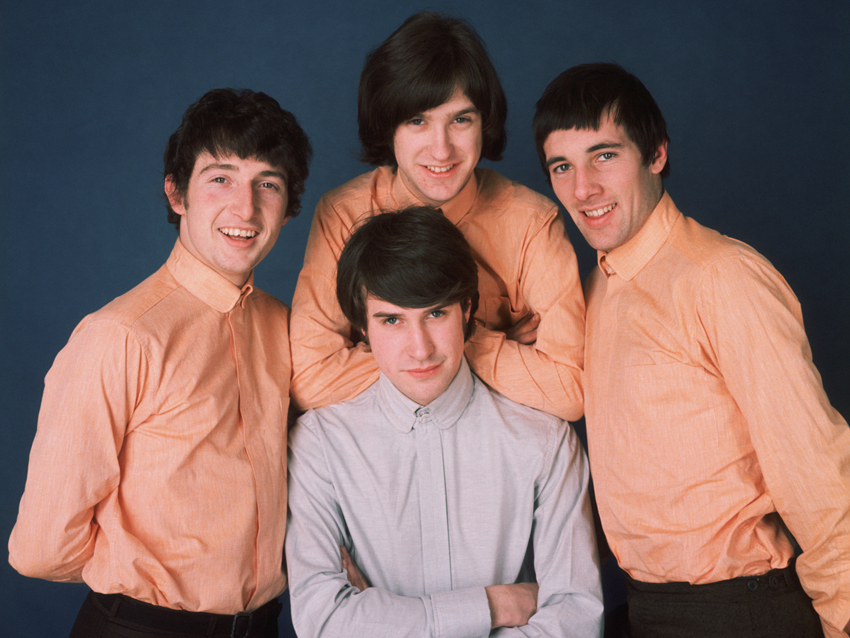
Meteor Strike
“I helped Mike build the pickups for an electric guitar he’d made. It was a semi- acoustic with f-holes. I used to hold the wire around an electro-magnet, around the centre of an old wind-up gramophone, to wind the wire round the magnet, using a bit of a fag packet as the support for the magnet.
"I would tinker about with that, but one day I saw this Harmony Meteor, with DeArmond gold-foil pickups. My mum paid a few quid down, and we got it on what we used to call HP – like credit, you know? The never- never. That’s when I started to really learn fast, when I had my own guitar. I used to copy records. Ray and I would be playing The Shadows and The Ventures and Johnny And The Hurricanes and all that stuff.
“We didn’t have an amp at first. We would look through the Exchange & Mart for cheap amps, and there was an amp called a Linear 30. It was 20 quid or something. We bought that, and we built a little speaker enclosure. That was probably my first amp. It was pretty s**t, but it made a noise; that was the main thing.
"I loved it. Then we started to play; we started to play together a lot. Then we met Pete [Quaife, original Kinks bassist]. He said he had a Fender when we first met, but it wasn’t; it was a Futurama.
It was a cheap copy of a Fender. Everybody wanted a Fender or a Gibson, because the American guitar players played them.
“The three of us played guitar and started hanging out together, and we started a little band at school. We bought a Watkins Dominator amp. I remember there was a band that had Watkins Dominators, and we thought, ‘Wow!’ They were really space-aged, they were triangle-shaped.
"One of our first ever gigs was me, Pete and Ray, and a kid that played drums at school, called John Start. All three of us, three guitar players, all plugged in to one Watkins Dominator! It was bouncing up and down. Then we had to make a decision: who was going to play bass? I’m afraid that Pete drew the short straw.”
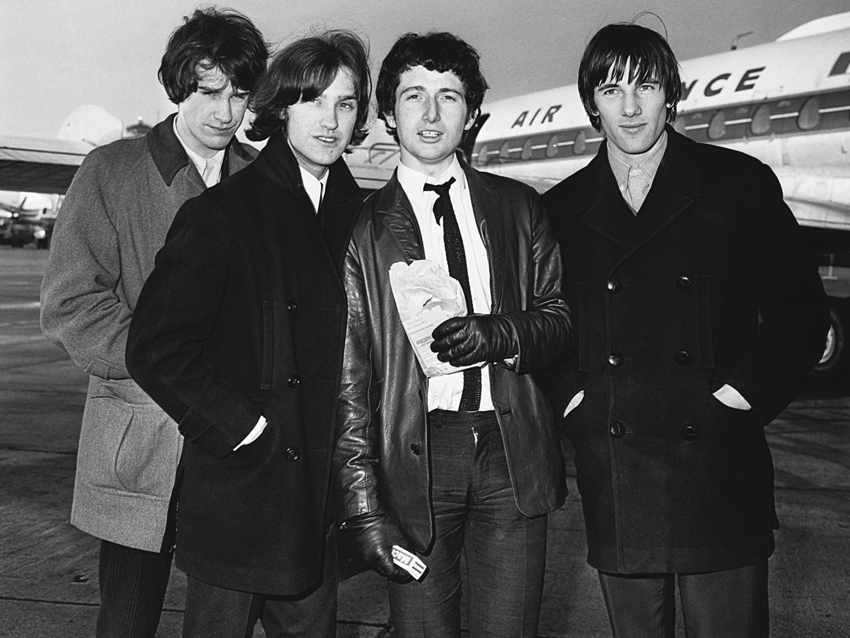
Taking The Lead
“Ray really played the lead early on; he’d play lead to Walk, Don’t Run and Apache and all that stuff, and I’d play rhythm.
"What happened was that I was so cocky, I thought I’d remember what I heard, but I’d play it wrong. It took me a while to realise that’s actually called ‘improvisation’! I kind of faked... not faked it; you kind of learn whatever way you can, you know, by whatever means strikes you at the time. Ray was more musically trained; he had guitar lessons, and was a really good picker. I just used to pick up things that I liked and copy them badly, and just f***ing go for it.
“Ray used to love Ricky Nelson records. Apart from the fact he used to have that typical-of-the-time, swanky kind of voice, a lovely voice, I used to listen to the guitar. Even now, I still regard the guitar solo on Hello Mary Lou as one of the best rock-guitar solos on record. It’s a beautiful solo. I only played it last week, and thought, ‘Woah, it’s so beautiful’. I was a big, big fan of Jimmy Burton. Anything with him on, I used to perk up and listen to it over and over and over again.
“But, also, it was amazing how guitar solos from that period seemed really to finish off the record. You’ve got your song and the intro, the chorus, couple of verses, guitar solo. To me, it was the highlight of the song. It’s funny; we grew up on music like that.
"Hound Dog is a really short record, and most singles didn’t last three minutes. The first time we went in to a studio and started to write our own stuff, they said, ‘Make sure it’s under three minutes, or we can’t get it played on the radio. People will get bored’. There was a kind of unwritten rule about keeping songs really short, especially if you wanted them to be a hit.”
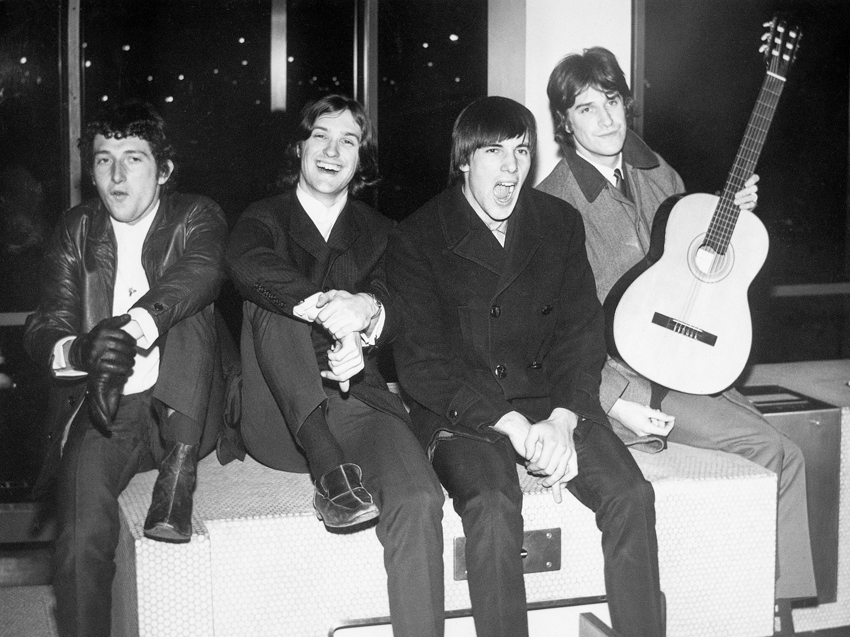
That Sound
“Jimmy Page did not play guitar on You Really Got Me, but he and a few other session guys were always trying to get in on it.
"It was really vibrant and very new. There were a lot of people sniffing ’round us, you know? But he definitely didn’t play on that. We signed a contract with Pye Records. In the meantime, I’d been working on honing a different guitar sound. I thought all the guitar sounds sounded so clean and nice, but ordinary.
“I found the Elpico amp in a shop just about two or three doors up from where we lived in Denmark Terrace, Muswell Hill. It was six or eight watts, or something. I plugged it in, and it was so ordinary. I got really mad with it! I got a single-sided razor blade and I slashed the speaker. I didn’t even expect it to work.
“I plugged it in and it came out with that rasping sound. Then I plugged it into an AC30. After a few electric shocks, because it wasn’t earthed properly, and the mains hum was really loud, it was nearly as loud as the actual tone... I wanted a sound more like John Lee Hooker, or something that had a bit of a roughness; a bit of atmosphere.
“People either hated it, loved it, or thought it was funny. I remember we did some shows before You Really Got Me came out, and we were still learning how to do it all. I think a big turning point was that sound, and also Ray was trying to find a way of singing... we were big, big fans of Lonnie Donegan and The Kingsmen; Louie Louie was a big influence on me and Ray.
"Me, Ray and Pete used to love that riff. If you think of Ray’s voice at the time, he sounded a bit nasal. Like Lonnie Donegan, he sang through his nose, and tried to mimic Americans: sort of sneery. I think it helps punch up the vocals in the mix.”
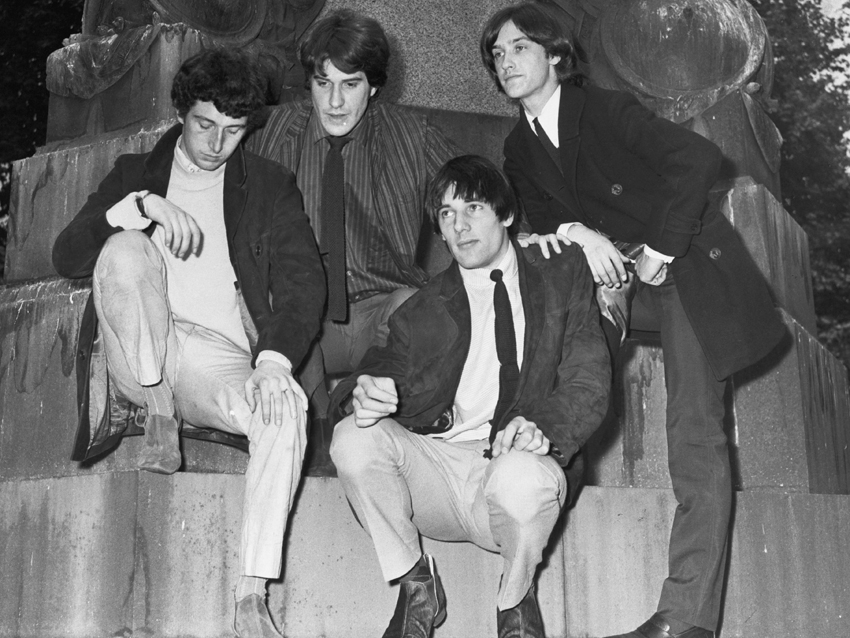
Teenage Angst
“The problems we had trying to record You Really Got Me! It was like they just didn’t know how to record it. They didn’t know how to record the bass or bass drum.
"They certainly didn’t have a clue how to record my guitar sound. We had to record it twice; the first one sounded crap – all echo.
“We said, ‘We’re not going to put it out, because it’s horrible’. Our manager at the time, Robert Wace, paid £200 for us to go and re-make it in a smaller studio. We knew there was something special about that guitar sound; we couldn’t wait to get the record out.
"We got rid of all the effects and echo and s**t; we wanted it to sound like it sounded in the room. I think we got pretty close. It’s quite a dry record. It’s really natural, and it’s really energised. Also, we only had 200 quid, and very little time to make it, so there was the tension of, ‘We’ve got to get it right, or that’s it’. It’s full of that anxiety, of like, ‘S**t, if we don’t do this, we’re f***ed’.
“That’s the difference between You Really Got Me and All Day And All Of The Night: if you play the two tracks back to back, All Day is more confident; it’s more open. It’s like people thought we actually did know what we were doing. Whereas the first one, there was a lot of fear and panic, and ‘Oh s**t, what are these mad kids doing?’ It was like a coded message in a way, that tone and that grit and that reality, really.
“You Really Got Me is a love song, but you wouldn’t think so; those kids, you didn’t have money or the sophistication to wine and dine some young lady. That’s what happened later in middle-class Britain. In those days, if you saw somebody you liked, you’d grab hold of her, you know what I mean?
"It has that sort of primal instinct; this primal energy in it as well. I was not a particularly articulate kid, although I had a lot of great ideas, but I didn’t know how to put them into words. The guitar was a great means of self-expression for me. There’s a lot of that frustration and anger and rage in the music.”
Chris Vinnicombe worked with us here on the MusicRadar team from the site's initial launch way back in 2007, and also contributed to Guitarist magazine as Features Editor until 2014, as well as Total Guitar magazine, amongst others. These days he can be found at Gibson Guitars, where he is editor-in-chief.
“It is ingrained with my artwork, an art piece that I had done years ago called Sunburst”: Serj Tankian and the Gibson Custom Shop team up for limited edition signature Foundations Les Paul Modern
“The last thing Billy and I wanted to do was retread and say, ‘Hey, let’s do another Rebel Yell.’ We’ve already done that”: Guitar hero Steve Stevens lifts the lid on the new Billy Idol album
“It is ingrained with my artwork, an art piece that I had done years ago called Sunburst”: Serj Tankian and the Gibson Custom Shop team up for limited edition signature Foundations Les Paul Modern
“The last thing Billy and I wanted to do was retread and say, ‘Hey, let’s do another Rebel Yell.’ We’ve already done that”: Guitar hero Steve Stevens lifts the lid on the new Billy Idol album


